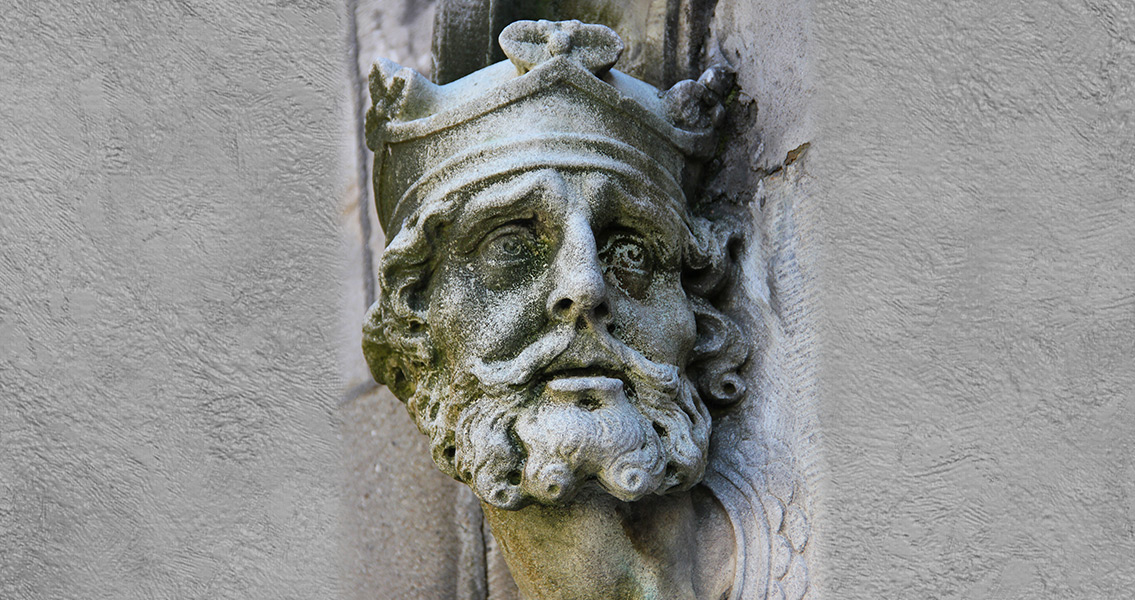<![CDATA[On 23rd April, 1014, Brian Boru was killed by a group of retreating Vikings. Considered the last great High King of Ireland, his descendants, the O'Briens, became one of the most powerful ruling dynasties in the country. In the early centuries CE, Celtic Ireland was a volatile, constantly shifting place. More than a hundred kingdoms and sub-kingdoms were embroiled in a complex system of rivalry, conflict and short term alliances. The political landscape was unstable, with no clear system of hierarchy or joint government outside of that within each small kingdom. Viking raids, starting in 970 CE, further complicated this situation and disrupted any balances of power in Ireland. The raids developed into long term settlements, the Norsemen established themselves in Dublin in 841 CE, while other settlements included Cork, Limerick, Waterford and Wexford. The Norse soldiers often served the battling kingdoms as mercenaries, allowing certain kings to improve their military might. The idea of a 'High King' of Ireland had its origins in pagan tradition, and persisted even after St. Patrick and other missionaries had converted much of Ireland to Christianity during the fifth century. Nevertheless, until Brian Boru's reign, this position was a largely symbolic one, connected to pagan beliefs surrounding the Gods of Love and War. Brian Boru was the first to take the position and make it something close to that of a national ruler. Brian was born in 941 CE, near Killaloe, Ireland. Details of his life have been obscured by legend, but he is generally believed to have been the son of a sub-king of a region in what is modern day County Clare. Brian's older brother, Mathgamain, deposed the king of Munster (one of the largest kingdoms in Ireland at the time) in 964, making him one of the most powerful figures in southern Ireland. Mathgamain was murdered by Norsemen from Limerick in 976, and Brian succeeded the Munster throne. His first action as king was to avenge his brother's death by killing the Norse king in Limerick. This started a period of aggressive conquest from Brian, with his military might allowing him to gain control of much of Ireland. In 999 for instance, Brian sacked Dublin. He allowed the reigning Norse king to keep his position, but on the condition that he was subservient to Brian. In 1002 Malachy of Meath, an ally of Brian and the ruler of the north of Ireland, surrendered the high kingship - making Brian the ruler of the whole of Ireland. The 'Boru' epithet in Brian's name means 'tributes'. This gives an insight into a key element of his rule, lesser rulers throughout Ireland were required to pay tributes to Brian, which were then used either to fund the creation of Brian's armies, or to restore the damage from Viking attacks. This system laid the first hints at something close to a centralised system of hierarchy, a king to whom all lesser kings were clearly subservient. Much of Brian's fame comes from his triumphs over the Norse forces. Brian's growing power had increasingly brought him into conflict with the Norsemen, as well as inspiring the envy of many of the lesser Irish kings. In December 1013, Sitric, the king of the Dublin Norse, formed an alliance which aimed to overthrow Brian. Sitric's force was a mixture of his own Viking forces, combined with Viking warriors from Iceland, the Orkney Islands and the Hebrides, as well as various clans of disgruntled Irish men. On 23rd April, 1014, Brian's forces (led by his son, Murchad) engaged the Viking coalition at the Battle of Clontarf. The day long battle would prove to be one of the most famous triumphs of Brian's reign, with his forces annihilating their opposition. Details of exactly how Brian was killed have been distorted by legend. The general consensus is that the then elderly king was staying in a tent away from the battle. By chance, a group of retreating Viking soldiers stumbled upon his tent, and took the opportunity to kill the High King of Ireland. Brian Boru has since entered into Irish folklore, a reminder of Ireland's rich, fascinating history. ]]>
Death of Brian Boru
